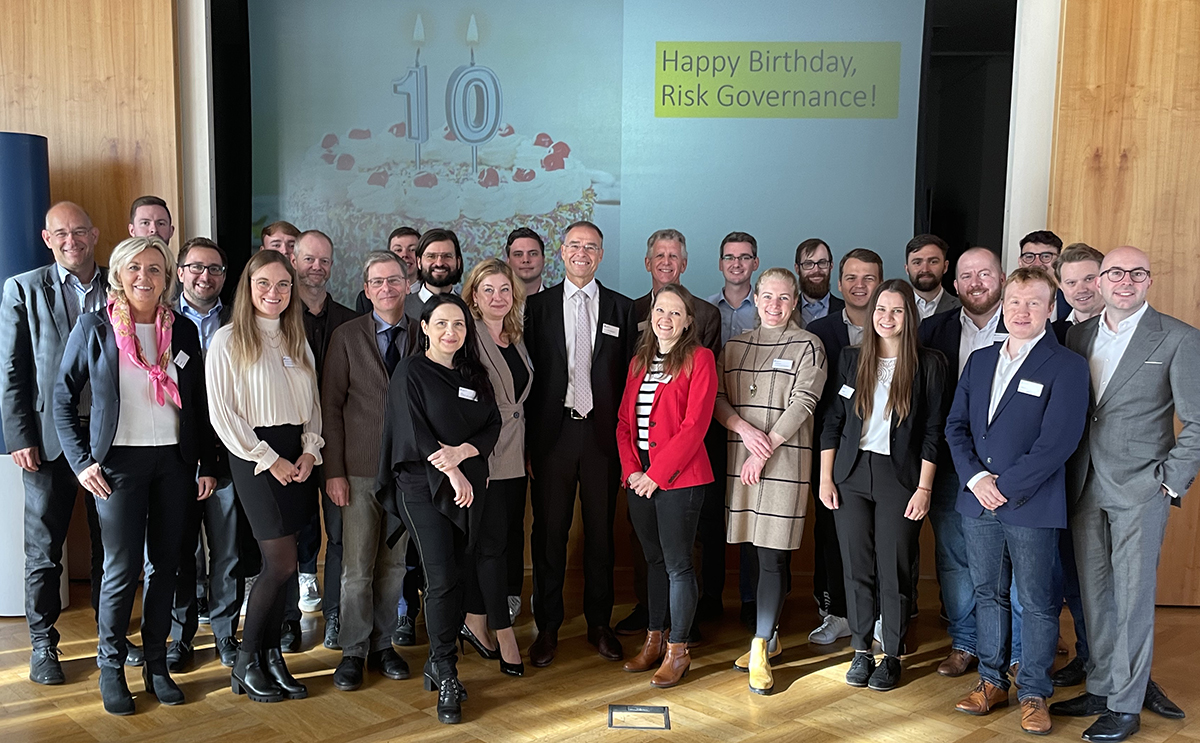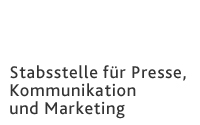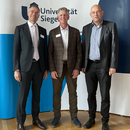Executive Department for
Press, Communication and Marketing
Adolf-Reichwein-Straße 2a Gebäude AVZ (Gebäudeteil AR-NA) 57068 Siegen
Phone: +49 (0)271/740-4915 Fax.: +49 (0)271/740-4911 E-Mail: presse@uni-siegen.de
“It’s about avoiding mistakes that threaten an organization's very existence”
Hardening companies against crisis — that’s the goal of risk governance. The academic field, founded by two Siegen researchers, is finding increased resonance from modern businesses. The current crises are also helping driving acceptance.
Ten years ago, Prof. Arnd Wiedemann and Prof. Volker Stein of the University of Siegen set out to establish a completely new subject in the academic field of business administration: risk governance — a management process for all parts of a company, integrated into the corporate strategy and authorized to work proactively during crises and emergency situations. “The crises of recent years have forced many companies to rethink how they work. Many decision makers see the necessity now more than ever to prepare systematic tools to arm themselves against crises. This level of willingness was not there in the past,” explains Wiedemann, a professor of finance and bank management at the University of Siegen. He sees many companies now applying the fruits of this application-oriented basic research to their own daily practices.
Risk governance seeks to make a company as crisis-proof as possible. In the past, it was often possible to formulate reactions to crises and problems as they arose. Everything moves too quickly nowadays, Stein says. Pandemic, energy bottlenecks, interest rate shifts, climate change, war, extreme weather, supply chain woes. “Today's crises influence, and enhance, each other. Companies need to be more prepared to react,” Wiedemann posits. It thus makes sense to make plans in advance, before the crisis arises or to help see it coming and allow for proactive reaction. “We started propagating these ideas a decade ago, but many companies rejected them, consciously or unconsciously,” Wiedemann says. “But at this point the pressure to act is stronger.”
 Every employee becomes a risk manager
Every employee becomes a risk manager
“It’s not important, and in many cases it’s even not possible, to always find the optimal solution for the company,” explains Stein, a professor of HR and corporate organization at the University of Siegen. “What's crucial is avoiding mistakes that could threaten an organization's very existence.” Making the first step — identifying potential problems and raising awareness within a company, training each employee to act with foresight based on pre-defined maxims — is the task of risk governance.
A real-life example: in recent decades, many companies have shifted their production to Eastern Europe, justifying the decision as more cost efficient. “The more reliant a company is on these supply chains, the higher the pay Eastern European employees can demand, and they’re absolutely right to do so,” Wiedemann says of the global market. “And prices rise correspondingly. This issue could of course be anticipated if corresponding mechanisms are in place to keep future trends on the radar. But these trends weren’t foreseen — or at least companies didn't want to see them.”
“Our basic research is suddenly very timely”
To bring a variety of perspectives into their research into risk governance, Stein and Wiedemann combined their various specialties. Wiedemann is more focused on “hard factors” from the world of finance, while Stein explores the so-called “soft factors,” including HR issues, corporate culture and visions. “It’s a somewhat uncommon combination for business administration programs, but extremely fertile. We push each other and can serve as mutual sparring partners. This has allowed us to strategically expand the areas we can cover,” Stein says. Among other topics, the pair of business administration experts are researching how risk governance can be addressed to various target audiences — such as employees, customers, suppliers, and financiers. They question current risk models and analyze how companies should best construct their risk management infrastructure.
Researchers in many countries are now studying risk governance. The two Siegen business administration professors recently organized a conference commemorating ten years of study in this field. Academics and practitioners from the USA, Netherlands, Finland, Austria, Poland, and numerous German cities made the pilgrimage to Siegen. Wiedemann and Stein also worked with colleague Mark Fonseca to release a book on the topic, “Risk Governance in Organizations: Future Perspectives.” “Our basic research is suddenly very timely, as corporate decision-makers are now realizing that they need to build up resources for long-term structures,” Stein says of the situation. “When companies make structural changes and train their teams in crisis management, then it becomes easier to act.” But one thing should be clear: risk governance is essential even when there are no acute crises.
Contacts
Prof. Dr. Volker Stein
Business Administration: HR Management and Organization, University of Siegen
Tel: +49 271 740-3227
Email: volker.stein@uni-siegen.de
Prof. Dr. Arnd Wiedemann
Business Administration: Finance and Bank Management, University of Siegen
Tel: +49 271 740-2664
Email: wiedemann@bank.wiwi.uni-siegen.de


